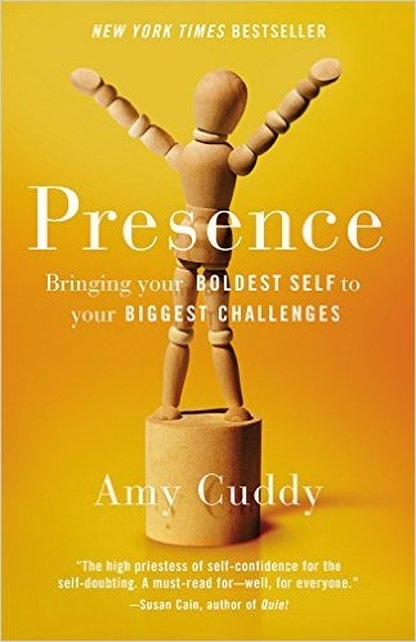|
Julia Baird, a politics, history and social policy columnist for the New York Times, made waves with her most recent piece, How to Explain Mansplaining. She cited some good research about how men are rewarded for speaking a lot ("he's confident! he's a leader!"), and women are punished ("she's too aggressive."). She discussed how men use direct language and women use "hedging language," or words that are meant to soften your ideas ("kind of," "might, maybe," "don't you think?"). She even mentioned research about how movies, even movies starring women, usually give women very few lines relative to men.
So here is the conundrum: Including women is not the same as hearing women. As the Princeton and Brigham Young study noted, “having a seat at the table is very different than having a voice.” Women at the table will attest to finding themselves talked over, cut off, interrupted or forced to politely listen to reams of lengthy speeches.
I hear that. I mean, who am I to argue with science? Facts are facts, even if you don't like them.
But one thing I couldn't help but wonder as I read this post was, "Why don't women... do something about it?" Obviously, the "right" approach will vary from woman to woman. I have ways of dealing with mansplaining and manologues that work really well for me -- at least in the short-term. And since so many women seem plagued by male speech, I thought this would be a good opportunity to share my experience. Let me start by saying, your number one best weapon against manologues is your own voice. When a man (or woman) starts blabbing on and on about stuff I already know, I don't expect them to magically read my mind and know I'm bored, annoyed or already well-aware of this. I open my mouth and say something -- usually along the lines of:
I get that there are real and perceived negative consequences for women who speak up and interrupt men. And I get that interrupting someone "feels rude." But first of all, for your own safety, happiness and well-being, you need to practice being "rude." Second, you can "soften" your interruption with a, "Come on, man, I'm just teasing you" sort of smile. That way, you've still said something "aggressive" that accomplishes the goal you wanted to accomplish, but you're made it feel less harsh. Yes, I know that, stereotypically, women smile more than men, and smiling can sometimes be seen as a sign of submission. But keep in mind that smiles also show warmth -- and warmth is an important part of charisma. Power alone isn't enough to make people like or respect you. From an evolutionary standpoint, if someone is powerful but they don't like me, they may as well not be powerful, because they will never use their resources or power to help me. Another way to feel less intrusive when you interrupt or redirect a manologue is to frame it less like, "You are boring me," and more like, "On behalf of everyone, let's keep this conversation on track." Negotiation research out of MIT shows that women are perceived negatively when they ask for something on their own behalf -- but not when they do it on behalf of another group, person or party. (I don't like it, either, but facts are facts.) So there you go. Use your voice. Use your words. With a little practice, you can gracefully deploy your most powerful weapon against manologues. But the thing is... sometimes, if someone's on a roll, we kind of decide, "Okay, next time he pauses for a breath, I'm going to jump in." Except then the person NEVER stops for breath! Or they do, but not long enough for you to feel comfortable jumping in. Time to release your second most powerful weapon against the manologue: your hand. I originally described the touch interrupt in 3 Easy Steps to the Perfect, Graceful Exit: Don't count on the speaker magically knowing that you have something to say. Instead, briefly touch the person on the arm or shoulder. This will create a pause in the conversation, and direct the speaker (and listeners') attention to you.
So. Think of a few words or phrases you want to use next time a man launches into an endless manologue. Be ready to use the touch interrupt. And, if you want a few more social skills to add to your arsenal, check out the following blog posts:
And don't miss the amazing Amy Cuddy's new book, Presence: Bringing Your Boldest Self to Your Biggest Challenges. You'll learn to be genuine and commanding, instead of phony and powerless.
Women: how have you successfully ended a manologue? How do you respond to mansplaining? Let me know in the comments, or reach out on Facebook or Twitter!
0 Comments
Leave a Reply. |
About the Author

Eva is a content specialist with a passion for play, travel... and a little bit of girl power. Read more >
Want to support The Happy Talent? CLICK HERE!
Or Find me on Patreon!
What's Popular on The Happy Talent:
Trending in Dating and Relationships:
What's Popular in Science: Playfulness and Leisure Skills:
Popular in Psychology and Social Skills:
Categories
All
|



























 RSS Feed
RSS Feed